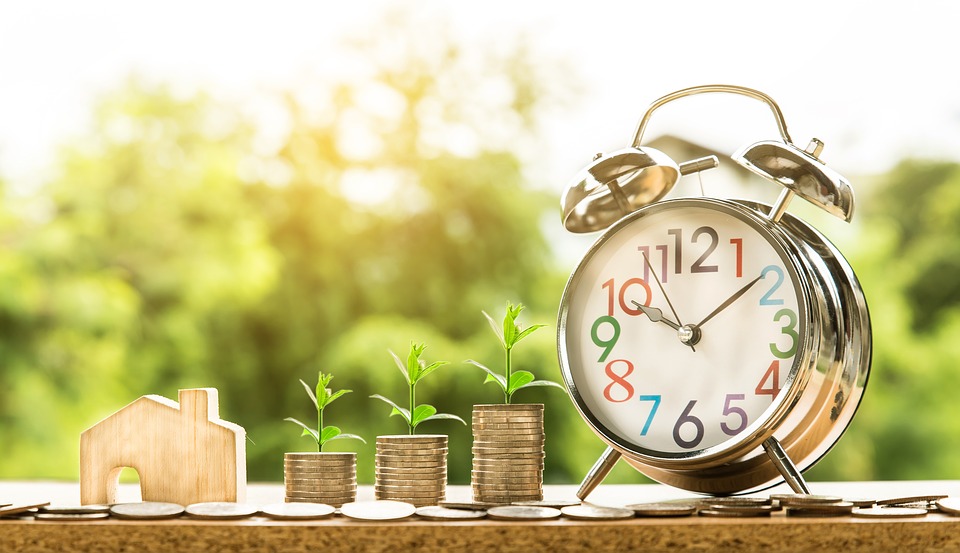Disclaimer – I’m no guru or expert the below is my own synthesis of the state of the economy.
I attended the December Southwest Florida (SWFL) Real Estate Investor’s Association (REIA) meeting last week. For those unfamiliar with these meetings, they are local real estate investor meetups that take place for people investing, participating, or interested in real estate come together to network and discuss the market. Most cities in the US have these meetups and each one is organized differently. The SWFL REIA meeting is organized for networking and learning some are put on by people interested in selling you something, so be cognizant of the people who are running it.
Each meeting features a different speaker who has knowledge on different topic areas of investing. This session was focused on where the market is currently and recapping the year. We went through government data on the state of the market, reviewed where we are in the debt cycle, and discussed what is likely to happen in 2018. There are interesting statistics showing that US household debt is much lower than it was leading up to the 2008 financial crisis. What has shifted is that most of that debt is now sitting on the government’s balance sheet instead. The Federal Reserve Bank (the U.S. central bank who dictates monetary policy) voted to raise rates for the 3rd time in 2017. It was another small rate hike as the US economy added more jobs and unemployment hovers around 4.1% at the time of this writing.

We are in one of the longest bull markets in US history now approaching its eighth year which is a bit concerning. There are some signs of a changing tide with monetary policy and most major debt levels are now past 2007 levels. It’s interesting to see the cycles in the market with oil having bottomed out and on the rise once again, while real estate continues to rise at a steady clip. The biggest risks in consumer debt seem to be in student loans and subprime auto lending which have both increased significantly during the bull market. I think one of the most interesting spaces to watch is in cryptocurrencies. Blockchain technology has a lot of hype which it rightfully should, but just like 3D printing, robotics, and Virtual Reality there was major hype and then a time where that dissipated and now more recently the promise of these technology spaces are starting to be seen. The difference is blockchain has more accessible uses cases than the previous technologies. I truly believe there is tremendous opportunity in cryptocurrency but I don’t believe it is now.
In the middle part of 2016, I felt as if we were approaching a correction and the end of the bull market. Obviously, the dip in January 2016 was short lived and the market has turned around since. At the end of 2017 and going into 2018 I feel good about where the US economy is at the moment but also realize that means we are approaching a correction the longer the bull market runs. At the REIA meeting, the speaker made a comment “what if we have finally figured out how to balance monetary and fiscal policy?” “What if we finally figured out how to make the economy run smoothly?” It was an interesting point to be made, but my perspective is we as a species are always iterating and inventing. I doubt we have figured out an efficient economy as there are still weaknesses and trends that are disconcerting. It is naive to think we have the answers knowing we as humans pretend to act as rational actors when in reality we tend to act emotionally and rationalize later.
I am cautiously optimistic about 2018 yet at the same time and mentally preparing for a downturn or at least minor correction in the marketplace. Based on history it is likely that the next correction will be minor relative to the last recession. I think it is important to recognize this and I want to be in a position to take advantage should an opportunity arise. The correction will likely be less severe than what many people will suspect based on the last cycle which means they may wait on the sideline to invest thinking the wave is going to crash further than it is. Thus being ready to take action while others hesitate will be crucial.
The Investors Podcast had a recent episode on December 16 that talked about what the end to quantitative easing in the US & Japan means. The point made is that we are likely to see some increase in inflation and the US dollar to start to lose value relative to other currencies. The Federal Reserve printed a lot of dollars and corporate debt has increased as companies can borrow at cheap rates. If inflation takes hold and interest rates increase it could have a very dramatic effect on the economy.
Take everything above with a grain of salt as I am no expert and merely synthesizing the data and arguments I’ve heard from the real estate, securities, and cryptocurrency space. Be smart with your financial well=being!
More Posts:
Your Financial Batting Average
Cryptocurrency Meet Up – Bitcoin & the Blockchain

[…] State of the Market – December 2017 […]
[…] State of the Market – December 2017 […]
[…] More posts…S […]
Comments are closed.